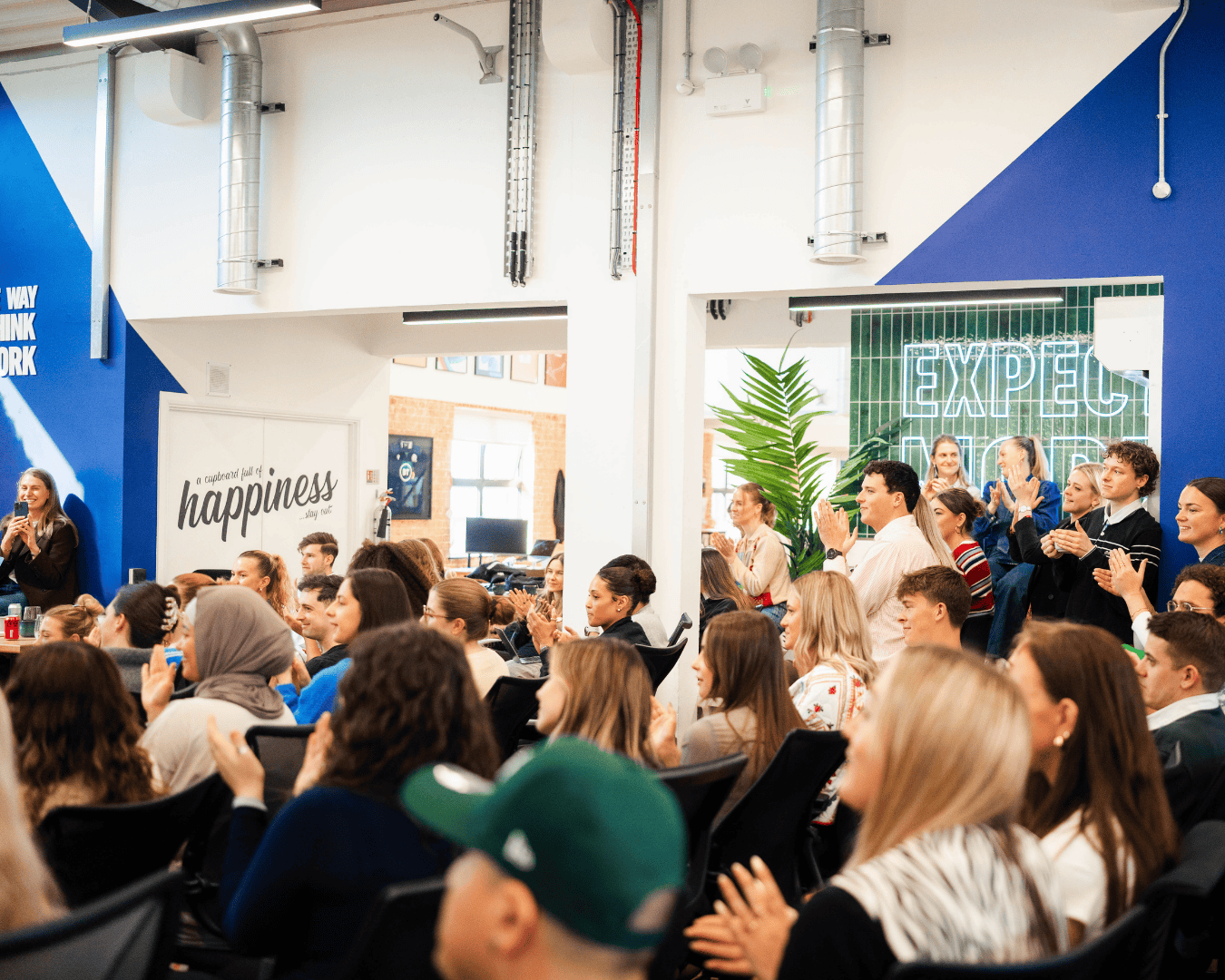With over 15 years in internal communications, including seven in employer branding, we sat down with Lucas Bosco, Employer Branding Specialist at TIM Brazil. He has led everything from Employee Value Proposition (EVP) projects to cultural transformation initiatives. But what makes his story stand out isn’t just the scale of the work; it’s how he sees employer branding not as a corporate sales pitch, but as a human connection.
How Lucas Bosco built his career in Employer Branding
Lucas’s career began in internal communications, where he spent more than a decade crafting messages, running campaigns, and building internal trust. That background gave him a deep understanding of how employees respond to communication and what doesn’t land.
“About six or seven years ago, I started studying and working in employer branding here at TIM. At the time, it was very new in Brazil you’d find maybe a handful of professionals in the space. I got in right at the beginning.”
Being an early mover in employer branding meant there were no established playbooks. Lucas had to build the function from scratch, first operating as a team of one, and then growing a team capable of shaping culture across thousands of employees.
This hands-on start has influenced how he approaches employer branding to this day with creativity and a focus on impact rather than noise.
Why connection matters more than selling
When Lucas talks about employer branding, one theme comes up often, honesty. For him, it’s dangerous when companies position themselves like they’re selling a shiny product.
“When you reduce it to a transaction, a job, a salary, a benefits package, you miss the point. That might work in the short term, but it doesn’t build lasting relationships.”
The transactional approach creates a cycle where candidates might join quickly but leave just as fast. Without a genuine connection, there’s no long-term loyalty. Lucas argues that true employer branding is about telling the unvarnished story of a company, including the challenges, imperfections and work-in-progress areas.
“It’s about creating a genuine bond between people and the culture of the organisation. If you try to be ‘too perfect’, people see through it. There are no perfect companies. Authenticity, even showing a little vulnerability, builds trust.”
This perspective feels especially relevant today, when candidates are sceptical of “too good to be true” campaigns. Lucas positions connection not just as a communications tactic, but as a long-term business strategy.
Three pillars of a strong employer brand
When asked what makes an employer brand strong, Lucas doesn’t hesitate: it’s clarity, consistency, and authenticity.
Clarity means being honest about who you are as an employer, whether that’s innovative and disruptive, or reliable and steady.
Consistency is about alignment between what you say and what you are.
Authenticity is what holds it all together.
“You can’t invent an employer brand. You have to dig into the culture, find what’s real, and amplify it.”
By weaving these three together, employer brands can create narratives that both employees and candidates recognise as genuine.
What leaders need to understand
Lucas is quick to point out that many senior leaders still treat employer branding as a short-term recruitment lever.
“Yes, a good employer brand attracts candidates. But the real power is in shaping reputation and building long-term trust. Too many leaders look for quick wins, like the number of applications from a campaign. But the real measure is what people say about you, and whether they choose to stay.”
For him, employer branding is as much about culture, retention, and advocacy as it is about attraction. It’s the bridge between what employees live and what candidates perceive and when leaders see it that way, it becomes a competitive advantage that endures long after a single hiring push.
How internal communications are changing
The way companies talk to their people has changed dramatically in the last five years. Lucas sees two major shifts driving this change.
First, the move from broadcast to dialogue.
“Employees don’t just want to be informed they want to be heard. They expect space to shape the narrative and take part in the conversation.”
Second, the explosion of communication channels. From WhatsApp groups for frontline staff to podcasts for corporate employees, messages have to be tailored to where people are and how they live.
At TIM, a diverse workforce meant values became the unifying thread.
“Our six values from Think Big to Promote Inclusion, are universal, but their meaning adapts to each role. Someone in a store interprets ‘Surprise the Client’ differently to someone in corporate, but the value is the same.”
This adaptive approach ensures that culture doesn’t become a “head office” concept, but something lived across every context.
Bringing company values to life
It isn’t just about what companies say, it’s about what employees experience day-to-day. That’s why Lucas is proud of Thanks, Team (Valeu, TIMe in portuguese), a recognition platform where colleagues nominate each other for living the company values.
“Employees can nominate colleagues for living a value, sharing a short story that’s then visible to their manager. It creates thousands of moments of recognition every month, and those stories become authentic content for internal comms.”
The design of the programme is deliberate: limiting nominations to three per person each month ensures every recognition carries weight. Managers see the impact, and stories can then be amplified more widely, creating a ripple effect of positivity and alignment.
On top of recognition, advocacy is a growing priority.
“We’ve learned that people trust their colleagues more than corporate emails. It’s about giving employees a voice.”
By giving employees permission and platforms to share their own stories, companies build credibility that no branded campaign could ever achieve alone.
The long term impact
Lucas’s journey is a reminder that employer branding isn’t about flashy campaigns or chasing quick metrics. It’s about telling the truth, building trust, and creating genuine connections.
In a world where people are demanding more from work than just a paycheck, credibility has become non-negotiable. Employer branding has the power to make the 90,000 hours we spend at work feel like time well spent and leaders who understand this will shape the organisations people want to join, stay with, and advocate for.
If you want to hear more insights from Lucas, check out his Substack, where he shares articles and trends on all things employer branding or his Linkedin profile.




